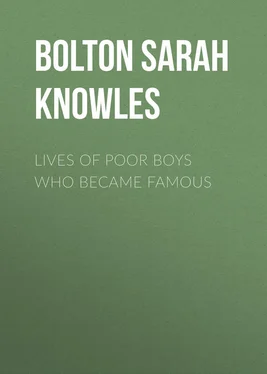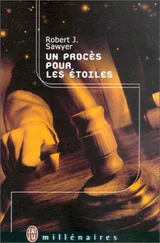Sarah Bolton - Lives of Poor Boys Who Became Famous
Здесь есть возможность читать онлайн «Sarah Bolton - Lives of Poor Boys Who Became Famous» — ознакомительный отрывок электронной книги совершенно бесплатно, а после прочтения отрывка купить полную версию. В некоторых случаях можно слушать аудио, скачать через торрент в формате fb2 и присутствует краткое содержание. ISBN: , Жанр: foreign_prose, foreign_antique, Биографии и Мемуары, foreign_language, на английском языке. Описание произведения, (предисловие) а так же отзывы посетителей доступны на портале библиотеки ЛибКат.
- Название:Lives of Poor Boys Who Became Famous
- Автор:
- Жанр:
- Год:неизвестен
- ISBN:http://www.gutenberg.org/ebooks/35950
- Рейтинг книги:4 / 5. Голосов: 1
-
Избранное:Добавить в избранное
- Отзывы:
-
Ваша оценка:
- 80
- 1
- 2
- 3
- 4
- 5
Lives of Poor Boys Who Became Famous: краткое содержание, описание и аннотация
Предлагаем к чтению аннотацию, описание, краткое содержание или предисловие (зависит от того, что написал сам автор книги «Lives of Poor Boys Who Became Famous»). Если вы не нашли необходимую информацию о книге — напишите в комментариях, мы постараемся отыскать её.
Lives of Poor Boys Who Became Famous — читать онлайн ознакомительный отрывок
Ниже представлен текст книги, разбитый по страницам. Система сохранения места последней прочитанной страницы, позволяет с удобством читать онлайн бесплатно книгу «Lives of Poor Boys Who Became Famous», без необходимости каждый раз заново искать на чём Вы остановились. Поставьте закладку, и сможете в любой момент перейти на страницу, на которой закончили чтение.
Интервал:
Закладка:
Watt about this time invented his "Parallel Motion," and the Governor, for regulating the speed of the engine. Large orders began to come in, even from America and the West Indies; but not till they had expended two hundred thousand dollars were there any profits. Times were brightening for the hard-working inventor. He lost his despondency, and did not long for death, as he had previously.
After a time, he built a lovely home at Heathfield, in the midst of forty acres of trees, flowers, and tasteful walks. Here gathered some of the greatest minds of the world, – Dr. Priestley who discovered oxygen, Sir William Herschel, Dr. Darwin, Josiah Wedgwood, and scores of others, who talked of science and literature. Mrs. Watt so detested dirt, and so hated the sight of her husband's leather apron and soiled hands, that he built for himself a "garret," where he could work unmolested by his wife, or her broom and dustpan. She never allowed even her two pug-dogs to cross the hall without wiping their feet on the mat. She would seize and carry away her husband's snuff-box, wherever she found it, because she considered snuff as dirt. At night, when she retired from the dining-room, if Mr. Watt did not follow at the time fixed by her, she sent a servant to remove the lights. If friends were present, he would say meekly, "We must go," and walk slowly out of the room. Such conduct must have been about as trying as the failure of his engines. For days together he would stay in his garret, not even coming down to his meals, cooking his food in his frying-pan and Dutch oven, which he kept by him. One cannot help wondering, whether, sometimes, as he worked up there alone, he did not think of Margaret, whose face would have brightened even that dingy room.
A crushing sorrow now came to him. His only daughter, Jessie, died, and then his pet son, Gregory, the dearest friend of Humphry Davy, a young man of brilliant scholarship and oratorical powers. Boulton died before his partner, loved and lamented by all, having followed the precept he once gave to Watt: "Keep your mind and your heart pleasant, if possible; for the way to go through life sweetly is not to regard rubs."
Watt died peacefully Aug. 19, 1819, in his eighty-third year, and was buried in beautiful Handsworth Church. Here stands Chantrey's masterpiece, a sitting statue of the great inventor. Another is in Westminster Abbey. When Lord Brougham was asked to write the inscription for this monument, he said, "I reckon it one of the chief honors of my life." Sir James Mackintosh placed him "at the head of all inventors in all ages and nations"; and Wordsworth regarded him, "Considering both the magnitude and the universality of his genius, as perhaps the most extraordinary man that this country has ever produced."
After all the struggle came wealth and fame. The mine opens up its treasures only to those who are persevering enough to dig into it; and life itself yields little, only to such as have the courage and the will to overcome obstacles.
Heathfield has passed into other hands; but the quiet garret is just as James Watt left it at death. Here is a large sculpture machine, and many busts partly copied. Here is his handkerchief tied to the beam on which he rested his head. The beam itself is crumbling to dust. Little pots of chemicals on the shelves are hardened by age. A bunch of withered grapes is on a dish, and the ashes are in the grate as when he sat before it. Close by is the hair trunk of his beloved Gregory, full of his schoolbooks, his letters, and his childish toys. This the noble old man kept beside him to the last.
SIR JOSIAH MASON
One sunny morning in June, I went out five miles from the great manufacturing city of Birmingham, England, to the pretty town called Erdington, to see the Mason Orphanage. I found an immense brick structure, with high Gothic towers, in the midst of thirteen acres of velvety lawn. Over the portals of the building were the words, "DO DEEDS OF LOVE." Three hundred happy children were scattered over the premises, the girls in brown dresses with long white aprons: some were in the great play-room, some doing the housework, and some serving at dinner. Sly Cupid creeps into an orphan-asylum even; and the matron had to watch carefully lest the biggest pieces of bread and butter be given by the girls to the boys they liked best.
In the large grounds, full of flowers and trees, among the children he so tenderly loved and called by name, the founder, Sir Josiah Mason, and his wife, are buried, in a beautiful mausoleum, a Gothic chapel, with stone carving and stained-glass windows.
And who was this founder?
In a poor, plain home in Kidderminster, Feb. 23 1795, Sir Josiah Mason was born. His father was a weaver, and his mother the daughter of a laborer. At eight years of age, with of course little education, the boy began the struggle of earning a living. His mother fitted up two baskets for him, and these he filled with baker's cakes, and sold them about the streets. Little Joe became so great a favorite, that the buyers often gave him an extra penny. Finally a donkey was obtained; and a bag containing cakes in one end, and fruit and vegetables in the other, was strapped across his back. In this way, for seven years, Joe peddled from door to door. Did anybody ever think then that he would be rich and famous?
The poor mother helped him with her scanty means, and both parents allowed him to keep all he could make. His father's advice used to be, "Joe, thee'st got a few pence; never let anybody know how much thee'st got in thee pockets." And well the boy carried out his father's injunction in afterlife.
When he was fifteen, his brother had become a confirmed invalid, and needed a constant attendant. The father was away at the shop, and the mother busy with her cares: so Joe, who thought of others always before himself, determined to be nurse, and earn some money also. He set about becoming a shoemaker, having learned the trade from watching an old man who lived near their house; but he could make only a bare pittance. Then he taught himself writing, and earned a trifle for composing letters and Valentines for his poor neighbors. This money he spent in books, for he was eager for an education. He read no novels nor poetry, but books of history, science, and theology.
Finally the mother started a small grocery and bakery, and Joe assisted. Many of their customers were tramps and beggars, who could buy only an ounce or half-ounce of tea; but even a farthing was welcome to the Masons. Later, Josiah took up carpet-weaving and blacksmithing; but he could never earn more than five dollars a week, and he became restless and eager for a broader field. He had courage, was active and industrious, and had good habits.
He was now twenty-one. He decided to go to Birmingham on Christmas Day, to visit an uncle whom he had never seen. He went, and this was the turning-point of his life. His uncle gave him work in making gilt toys; and, what was perhaps better still for the poor young man, he fell in love with his cousin Annie Griffiths, and married her the following year. This marriage proved a great blessing, and for fifty-two years, childless, they two were all in all to each other. For six years the young husband worked early and late, with the promise of succeeding to the small business; but at the end of these years the promise was broken, and Mason found himself at thirty, out of work, and owning less than one hundred dollars.
Walking down the street one day in no very happy frame of mind, a stranger stepped up to him, and said, "Mr. Mason?"
"Yes," was the answer.
"You are now, I understand, without employment. I know some one who wants just such a man as you, and I will introduce him to you. Will you meet me to-morrow morning at Mr. Harrison's, the split-ring maker?"
Читать дальшеИнтервал:
Закладка:
Похожие книги на «Lives of Poor Boys Who Became Famous»
Представляем Вашему вниманию похожие книги на «Lives of Poor Boys Who Became Famous» списком для выбора. Мы отобрали схожую по названию и смыслу литературу в надежде предоставить читателям больше вариантов отыскать новые, интересные, ещё непрочитанные произведения.
Обсуждение, отзывы о книге «Lives of Poor Boys Who Became Famous» и просто собственные мнения читателей. Оставьте ваши комментарии, напишите, что Вы думаете о произведении, его смысле или главных героях. Укажите что конкретно понравилось, а что нет, и почему Вы так считаете.












